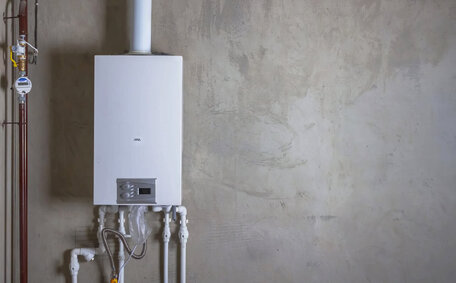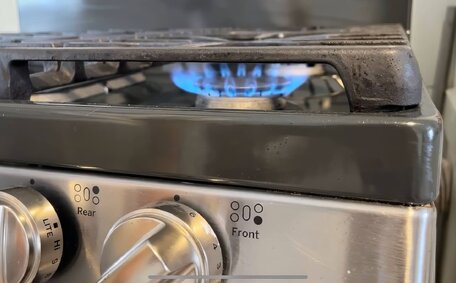Introduction to Environmental Factors Affecting Hot Water Systems
The efficiency and performance of hot water systems can be significantly impacted by external environmental factors. Fluctuating outdoor temperatures directly influence the energy required to heat water for household use. Furthermore, increased humidity levels make it more challenging for systems to maintain comfortable water temperatures.
As homeowners in Glenhaven, Sydney, concerned with your hot water heater’s performance, we’re well-versed in how the region’s variable climate with hot summers and cooler winters influences your hot water system.
With rising electricity prices and growing environmental consciousness, It’s important we grasp how climatic conditions influence the operational costs and emissions of different types hot water heating systems in local homes.
This encompasses various types hot water systems such as solar, heat pump, gas, and storage tank. By considering external factors and regular maintenance, we can achieve lower energy use, optimise efficiency to save money, and reduce our carbon footprint.
Impact of Temperature and Climate on Efficiency
Outdoor air temperatures significantly impact the energy efficient hot water system performance. As ambient temperatures rise and fall throughout the year, so too does the energy required to heat water to usable temperatures. Your water heater must exert more effort in winter to heater your home when starting temperatures are lower.
Increasing the amount of hot water from 50°F to 120°F consumes more energy than raising it from 70°F to 120°F. Small climate variations can therefore equate to more than one large difference in types hot water energy use. It’s estimated a 1.8°F increase in average temperature leads to a 5% rise in residential energy demand.
Heat pump systems for hot water are generally more energy efficient, being 40-50% more efficient than electric water heaters in this climate. They extract latent heat from the ambient air and require less electrical input to raise heat pump water temperatures, harnessing the power of pump water heater technology. But they perform best between 50-90°F so extremely hot or cold days reduce efficiency levels.
Gas hot water systems, which primarily use gas and use electricity less frequently, also see seasonal efficiency drops of up to 10% in winter. But they largely avoid peak electricity grid strain from increased air conditioner use on hot days. Adapting systems to the local climate ranges of your area is key to optimising hot water delivery while minimising energy waste and emissions.
Role of Water Quality in Performance
Water quality significantly impacts the performance and efficiency of hot water systems. Hard water, containing high mineral content like calcium and magnesium, causes scale buildup in pipes and heating elements.
This limescale layer acts as an insulator, compelling your water heater to work harder to heat water. It slowly reduces flow rates, shortens equipment lifespan, and increases the energy bill. Continuous flow tankless water heater efficiency can drop by as much as 25% in areas with hard water.
Using storage water softeners is an effective preventative measure. Alternatively, flushing heat exchangers yearly and draining storage tanks every 5 years removes scale deposits. Inspecting the anode rod and replacing it when significantly deteriorated also protects system integrity.
With water hardness levels of 145ppm CaCO3 in Glenhaven, it’s crucial to monitor water quality impacts on your water tank through routine maintenance. This optimises energy efficiency, avoiding expensive repairs or replacements down the track.
Comparing Hot Water System Types for Eco-Efficiency
When selecting a water heater, it’s important we consider the environmental impact alongside efficiency and costs. Solar hot water systems and heat pump models, harnessing renewable energy, are more eco-friendly options that can significantly reduce a household’s carbon footprint.
Heat pump solar hot water system models don’t generate any direct greenhouse emissions. By using latent heat air in ambient air, similar to energy efficient systems in the United States, they can decrease harmful emissions, including carbon pollution, by 60-80% compared to electric storage heaters. They also help lower your energy consumption, with efficient use of the ambient air as an energy source, boasting ratings around 300-500%.
Solar energy systems that provide hot water cut down on reliance on traditional power plants, which frequently use fossil fuels, thus shaving off carbon emissions and making them a savvy investment for your home. This cuts energy demands by 50-75%.
Solar water collectors, though initially more costly, heat water directly using passive energy, needing only a pv system panel and pump to circulate it. Though they work better in sunnier climates, such as New Zealand, savings of 20-40% are still typical in New South Wales.
While less efficient, modern gas hot systems also emit 25% less CO2 than old electric storage tanks. And they avoid increased grid strain from heatwaves. By understanding your water system and how it operates with different technologies, we can select the best ways to meet eco-goals in addition to just satisfying household needs.
Maintenance Tips for Optimizing Efficiency
With regular maintenance, we can save money on your energy gas bills, thus easing the burden on your finances and reducing emissions.
Insulating exposed pipes prevents valuable heat loss and reduces hot water use. To protect money your invested in your system, ensure outdoor units can used for space heating have weather shields in colder months to curb excess water use. Setting thermostats only as high as needed (50°C is usually enough) likewise ensures you make use of only necessary amounts of energy, thus minimising wastage.
Installing water-saving fixtures like low-flow showerheads can reduce your hot water usage. Fixing leaks immediately can also prevent the system from repetitively reheating and pumping water unnecessarily.
We should drain water tanks and flush heat exchangers yearly to mitigate sediment buildup. Replacing anode rods when worn 60%+ further protects system integrity. Checking drainage valves, pressure relief valves, and insulation guards during routine servicing can also reduce energy loss and prevent minor issues from worsening.
Whilst the Glenhaven climate varies, properly maintaining our natural gas hot water systems optimises efficiency. We can reduce costs over time with fewer breakdowns. And by ensuring our system can consume less energy we also lower household emissions.
Innovations in Sustainable Hot Water Heating
Technology is rapidly progressing in the field of sustainable hot water solutions. Smart controls in new hot water systems utilise sensors and Wi-Fi connectivity to finely calibrate water heating to usage patterns and weather forecasts.
How does smart thermostatic control make a difference? By only heating water as necessary, smart systems equipped with pump hot water technology achieve efficiency improvements of 10-15%. Integrating pump solar hot energy sources offsets the reliance on vs electric hot water systems, particularly in heat pump hot system designs. Understanding your hot water system how it operates can lower your energy needs by an impressive 30-40%.
New heat pump designs place focus on recyclable, eco-friendly refrigerants to eliminate greenhouse gas emissions over time. Some also harness CO2 instead of HFCs as the working fluid. This innovation completely eliminates direct emissions.
Forward-thinking households in Glenhaven keen to maximise efficiency gains and environmental benefits should explore the potential of these cutting-edge, sustainable technologies.
Rebates and Incentives for Upgrading Systems
With rising energy costs and growing eco-awareness, financial incentives can motivate Glenhaven homeowners to upgrade outdated hot water systems. The NSW government’s Appliance Replacement Offer can more readily provide discounts on installing efficient electric heat pump or solar models.
Those swapping gas hot water system or electric storage tanks for approved heat pumps receive $500 back. Going solar nets $1100 return for electric boost-assisted systems, or $1500 for gas boost backups. Rebates require using Clean Energy Council accredited installers.
The federal government also chips in for solar hot water under their Solar Hot Water Rebate programme. This provides homeowners who want to learn more about the rebate, $1000 for switching from electric and $1600 from gas. Applicants must register their details to confirm eligibility.
Between state and federal schemes, households replacing inefficient systems can put money back into your pocket ranging from $1500 to $2600 in rewards. This makes upgraded heat pumps and solar units more cost-competitive than other water heating options, which can lead to significant savings in energy and emissions.
The Future of Eco-Friendly Water Heating
As climate change continues and energy costs rise, we’re seeing a clear shift towards sustainable hot water solutions. Eco-conscious homeowners are increasingly savvy about the long-term economic and environmental benefits of upgrading to efficient, renewable systems, discerning which best serve their interests like heat pumps and solar hot water.
Industry experts predict over 50% of Australian households will transition to new hot water systems like heat pump or solar models by 2030, aiming to meet your needs sustainably. This technology is rapidly improving and costs are reducing too. We can expect even greater efficiency and reliability from next generation systems.
Glenhaven homeowners eager to future-proof should strongly consider installing one of these eco-options to replace your ageing hot water unit. Reduced energy bills and emissions will quickly offset upgrade expenses. And with generous government rebates available, going green is now very attainable.
For more information about and tailored advice on selecting an efficient, environmentally friendly hot water system for your household’s needs, email or call the team at Glenhaven Plumbing today. As local experts, it’s a good idea for us to stay informed about the latest advancements in sustainable hot water heating technology.





